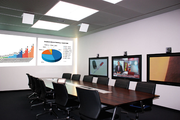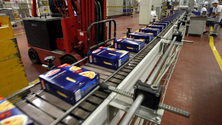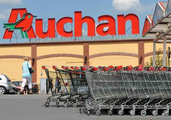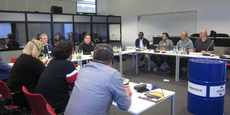 |
| Download pdf file | Newsletter archives | |||
| Dieser Newsletter auf Deutsch | Cette newsletter en français | |||
 |
1. What does Macron mean for works councils? |
 |
|
Fast track adoption of "XXL Labour law"
Emmanuel Macron is the new president of France since 14 May 2017. The former economy minister of his predecessor François Hollande had left the socialist party and launched a new movement ("La République en Marche!"), which in the future will benefit from an absolute majority in the national assembly. It is seeking to reinforce labour legislation reforms and the austerity policies of the previous government, although these had led to mass protests (see report in EWC News 1/2016).
Press report on labour legislation reforms
A list of planned measures was handed over to the trade unions on 6 June 2017. The new government will hold more than 50 meetings throughout the summer with union representatives and employers' associations and the changes in legislation are to enter into force on 21 September 2017. The most important points of the "XXL Labour law ":
Creeping landslide in the trade union landscape
On 31 March 2017, the Ministry of Labour released new figures on the relative strength of the different union confederations in the French private sector. For the first time with 26%, the social-democratic inspired CFDT came out strongest and relegated the militant CGT, originating from a traditionally communist background with scarcely 25%, to second place. This has never been seen before since the CGT was founded in 1895. Although the shift is not very significant compared to the last assessment in 2013, the trend has been going in the same direction for years and is on the increase.
The anticommunist inspired FO came in third place with 16%, followed by the CFE-CGC, the union for professional and managerial staff, with a strong increase to 11% as well as the Christian CFTC, with 9%. All other trade unions fall below the legal threshold of 8% for recognition as collective bargaining partners at the national level. According to the criteria for recognition set by collective bargaining law, for the first time the CFDT will be able to conclude universally binding industry-wide agreements with employers entirely on its own, without involving a competing union. Out of all French trade unions, the CFDT is positioned as the most Macron-friendly and in the past had already supported the disputed reforms under the Hollande government. Meanwhile the CGT has begun to mobilize against the proposals from Macron. The autumn could prove to be a lot warmer than expected.
Press report on the new figures Trade union reactions to the new figures FO trade union's opinion on the XXL labour law
Former EWC Member becomes secretary of state
Forthcoming event
A speaker from Paris will give more details on current developments in France at the Hamburg conference organized by the EWC Academy on 29 and 30 January 2018. The program for the conference will be available after the summer break 2017. |
 |
2. The exit from Brexit has begun |
 |
|
Hard Brexit, Soft Brexit or No Brexit?
The government requires a majority each time it wishes to pass any of a whole string of Brexit laws. It would only take a few MP's to not unconditionally support the government's policies on some points of detail, for the whole Brexit process to run into difficulties. There were already signs of a clear split in the conservative party only a few days after the election, since some MP's reject a hard Brexit favored by Theresa May. They would like to remain in the European single market and the customs union. If the government loses control of Brexit, there could once again be snap elections in the not-so-distant future.
Labour obtained the largest gain in votes that a political party has ever had between two parliamentary elections, since 1945. In the meantime, opinion polls after the election show a clear lead for the largest opposition party, which would most probably end up in a change of government in the case of new early elections. Theresa May must do everything to avoid another parliamentary election. Her fate hangs on the Brexit. If the Brexit fails, Theresa May fails, and with her the conservative party.
Majority for remaining in single market
In the meantime, behind the scenes there are discussions on possible compromises. According to press reports, a part of the conservative party is apparently ready to remain in the single market providing that immigration from the EU can be restricted for five years to come. However, membership in the single market, such as in the case of Norway, means continuing to pay contributions to the EU and the transposition of nearly all EU Directives, without having any say on them. Will the British government be ready to accept all this, whilst at the same time voluntarily giving up any political influence that they currently have in Brussels? The next question is then: would it not be better to simply remain in the EU?
Current opinion poll of the trade union confederation TUC Further information on our special Brexit website |
 |
3. Video conferences to replace face-to-face meetings? |
 |
|
Change in German EWC legislation adopted
On 2 June 2017 the German Bundestag - largely unnoticed by the public - adopted change to the European works council law (EBRG). This is the first change since 2011, when the recast EWC Directive in Germany was transposed (see report in EWC News 1/2011). For the first time the new article 41 a opens up the possibility of organizing EWC and SNB meetings by video conference, including the adoption of resolutions. If the Upper House of Parliament does not have any objections on 7 July 2017, the change in legislation will come into force on 10 October 2017.
This legislative initiative is a result of a EU Directive from October 2015 concerning seafarers. Together with this, several older EU Directives have been modified to improve working conditions as well as information and consultation. The new article 41 a of the EBRG is therefore limited to crew members on ships. They may participate in meetings by means of information and communication technologies (e.g. video conferences), providing that provisions are made in the body's rules of procedure and the privacy of the meeting is guaranteed. All of the European single market member states must adapt their legislation before 10 October 2017 at the latest. The new regulations do not apply to SE works councils nor to SNB meetings in the context of SE conversions.
Full text of the 2015 Directive as regards seafarers
Gateway for all sorts of virtual works council meetings
The Bavarian Industry Association is demanding a more rapid and efficient co-determination process, "to reflect the ever faster decision-making in the digitalised environment. Greater use must be made of digital means of communication in the involvement of the works council and in the dialogue between works council members". According to the Federal Association of Labour Law Experts in Businesses the subject of on-line or video conferences is relevant in practice for all supra-regional representation bodies. "Central and group-level works councils often have members from across Germany and cannot schedule many regular meetings at which decisions can be taken. This can considerably slow down the implementation of business projects."
These quotations are taken from the White Paper Work 4.0 that the German Federal Government released in November 2016. We can also read here that unlike in a face-to-face meeting, during a video conference there is no guarantee that a third party is not participating off-camera or secretly recording it. Personal contact and group dynamics are missing. A video conference is not able to reproduce the wealth and diversity of human communication (mimics, gestures, body language) provided by personal contact "perceptible to the senses". Research workers have warned of the risks of virtual communication (see report in EWC News 1/2009).
Despite this, the government wishes to consider authorizing the use of video conferences for works council meetings. The pre-requisite should be that the initiative be taken in well-defined exceptional circumstances whereby a face-to-face meeting would be considerably complicated due to a particular urgency and should follow a unanimous decision of the works council. The employer would have to guarantee beforehand by technical measures that any third-party is not able to participate in the meeting.
Full text of the White Paper on Work 4.0 (see from page 159 on)
In France video conferences are legally authorized since 2015
The functioning of French works councils was radically reformed in August 2015 and the consultation procedure for restructuring simplified. Since then, meetings are also possible via video conference and the employer, who is always chairman in France, may record them. This also applies to Central and Group works councils and to all European works councils which are subject to French jurisdiction (see report in EWC News 3/2015).
Forthcoming event
The current status of the changes in legislation will be covered in our legal workshop from 24 to 27 October 2017 in Berlin.
|
 |
4. Restructuring on the EWC agenda |
 |
|
Unilever plans to sell its margarine business
For many years already Unilever has been acting such as a financial investor constantly changing its product portfolio: in rapid succession there have been global acquisitions and spin-offs. The decision for the sale of the margarine division fell shortly after a takeover attempt by its US competitor Kraft Heinz. Although Unilever management was able to resist the attack on 19 February 2017, it had to subsequently promise an increase in return on investment from 16 to 20% to its large investors until 2020. In order to achieve this goal, the group will withdraw further and further out of the food business and concentrate on the more profitable segment of personal care products.
The European works council is demanding social guarantees
The EWC presented an initial list of demands on 2 June 2017, aimed at influencing up-front the talks on any future sale. The main objective is to safeguard the margarine business and its employees. The demands are to preserve all sites and jobs, in Germany there are margarine plants in Pratau (Saxony-Anhalt) and Kleve (North Rhine-Westphalia). A potential buyer must have a long-term interest in the margarine business, a sustainable business model and preserve all existing employment conditions, including pension commitments. There are talks underway on the sale to several financial investors also to Kraft Heinz. The consequences that this can have was last demonstrated in March 2016 in Sweden. A few weeks after the acquisition of a frozen food factory by a financial investor and the merger with Iglo, the site was closed (see report in EWC News 2/2016).
European works council press release
Disputed merger of gas producers
In a long ten-hour meeting held on 1 June 2017 in Munich and following a contested vote, the supervisory board of the technology group Linde agreed to merge with the US group Praxair. As a consequence, Linde and Praxair have become the world's largest manufacturer of industrial gases. A part of the investors and the unions take a critical stance towards the merger. In some countries it could come to substantial job losses. Besides this, the new holding's headquarters are to be located in Dublin, where there is no right to supervisory board codetermination. The approval of antitrust authorities as well as the consultation with both European works councils are still pending.
As early as 7 December 2016, with support of employee representatives, the supervisory board had adopted a memorandum of agreement in favor of the merger transaction. Beforehand, a contractual agreement had been made guaranteeing job-security for the 8,000 German employees up to the end of 2021 as well as the continuation of bargaining coverage and the safeguarding of the Dresden plant with 500 jobs. Originally the plant was due to be completely closed.
IG Metall trade union: "a breach in the history of German industry"
Subsequently, the merger plans however led to an open power struggle between Linde's management and the unions. In the opinion of IG Metall the merger should have been called off. On 27 April 2017, 2,500 employees held protest demonstrations at 30 sites throughout Europe against the merger and the Bavarian regional and Federal Governments got involved in the discussions. Linde's supervisory board is composed of twelve members of which six are employee representatives. During the secret ballot there were five votes against from the employee delegation and one abstention, which was probably from the works council chairman from Dresden. The merger was therefore approved by six votes in favor and five against. In German supervisory boards such contentious voting is very rarely seen since a consensus is generally sought beforehand. IG Metall considers that "forcing through such a close vote instead of a seeking consensus is a breach in the history of German industry".
Background report from the Hans Böckler Foundation Press report on the situation before the vote IG Metall press release after the vote
In the course of the merger the two European works councils are also to be combined into one. Linde has had a EWC under German jurisdiction since 1996. The agreement was substantially improved after the acquisition of the British BOC Group in 2007, and the EWC expanded to 28 members from 15 countries (see report in EWC News 2/2007). Praxair established a EWC under Spanish jurisdiction in 2000 which meets once per year in Madrid under the chairmanship of the employer. It is composed of 16 representatives who represent the 3,500 employees in ten European countries. |
 |
5. Current legal proceedings |
 |
|
French Supreme Court rules on "voluntary" EWC agreement
The British company does business in the sanitary and heating wholesale and has its headquarters on the island of Jersey in the English Channel, which does not belong to the EU. Wolseley's European works council represents 16,000 workers in eight European countries. When there were redundancies in the French subsidiary in 2013, the EWC was neither informed nor consulted. In France, such a formal violation often leads to the cancellation of redundancies (see report in EWC News 1/2010). The employees concerned filed a claim for additional compensation for the loss of their jobs.
Controversial issue: the transnational competence of the EWC
According to the new EU Directive the EWC can also be competent in matters where only one country is affected by measures. In the recital 12 the legislator explicitly wanted to guarantee that employees "are properly informed and consulted when decisions which affect them are taken in a Member State other than that in which they are employed". If central management in country A makes a decision, which only affects country B, then the EWC must be involved (see report in EWC News 1/2013). The Wolseley agreement is however not subject to the EU Directive and provides for consultation only in the case of exceptional circumstances in two countries. If the agreement had been subject to the EU Directive, the applicants would have probably won.
Forthcoming event
The contentious nature of these court proceedings is relevant for many European works councils. It will be covered in our legal workshop from 24 to 27 October 2017 in Berlin.
EWC members to remain in office until the end of their term
The Versailles appeal courts ruled on 14 March 2017 on the request for the removal of two French delegates from the European works council of the Axa insurance group. Both representatives which include the EWC general secretary had decided in 2015 to change unions from the social-democratic inspired CFDT to the union for professional and managerial staff, CFE-CGC. Consequently the CFDT wanted to replace their mandates in the EWC and filed court proceedings against both representatives, the other trade union and the company Axa. In a second instance appeal the court has now ruled that the removal of members is not possible during the current term of office.
In France, European works council representatives are not elected, but are nominated by the unions. The number of mandates for the different unions depends on the results of works council elections. The choice of delegates takes place within the respective unions according to their own rules. Each seat in the EWC is therefore attributed to a particular union. The same applies to the composition of French Group works councils. Only the members of Central works councils are elected by local work councils and are not nominated by the unions. The appeal court in Versailles has jurisdiction over a part of the Paris office suburb, La Défense, where many large French groups have their headquarters. It had last ruled on a EWC matter in May 2015 (see report in EWC News 3/2015).
Collective bargaining coverage after transfer of undertakings
The court ruling dealt with the issue of whether a clause in an employment contract continues to be valid after the transfer of the company to a new owner and whether this is consistent with provisions of the EU Transfer of Undertakings Directive. The employment contracts of the two plaintiffs contained a guarantee that one or more collective agreements applied to them "in their currently valid version". Although the Asklepios group is not bound to collective bargaining, the Luxemburg judges consider that the obligations specified in the employment contract are to be completely transferred over to them. This applies also to wage increases in the years following the transfer.
Report from the ver.di trade union Full text of Transfer of Undertakings Directive |
 |
6. Revised EWC agreements |
 |
|
New rules for Japanese car manufacturer
The entire activity of the EWC is organized by a HR coordinator, appointed by the employer. Each site with 50 employees or more appoints one employee representative and a senior manager. Countries with small sales offices elect one representative if they have more than 15 employees. The EWC is composed of altogether 26 employee representatives, including six from England, where the largest European Honda car factory is located. The manufacturing plants for motorcycles are located in Italy (three representatives) and Spain (two). Belgium where the European logistics center is located, has four mandates. Lawnmowers are manufactured in France (two mandates).
The "Organizing Committee" is composed of six employee and two employer representatives with the coordinator appointed by the company as chair. It holds four meetings per year and video conferences are possible. In exceptional circumstances, on request of employee representatives from at least two countries, an extraordinary meeting is held between the Organizing Committee and representatives of the countries concerned with their respective responsible managers. Following each ordinary EWC plenary meeting the representatives present a report in a sort of General Assembly organized during working hours in all European sites.
The new EU standards on information and consultation have been partially, but not fully integrated into the EWC agreement. On request, employee representatives may commission external experts, with an annual budget amounting to 50,000 €. The coordinator has the power to decide on the request. If the request is rejected, a binding decision is made by an independent third party, on which both sides must agree. Experts may not participate in meetings but deliver their report in writing. By this means, a consultation procedure can be extended by 15 days at the most.
French foodstuffs group updates EWC agreement
All 16 representatives from nine countries hold a plenary meeting once annually. They elect a steering committee composed of a general secretary (from France) and three further members (one from each geographical region) which likewise meets at least once per year. The catalogue of consultation topics goes beyond the EU Directive. It includes working conditions for seasonal and contract workers as well as proactive planning of demography and workforce skills in all European sites. The EWC can call on the services of experts and benefits from training.
Since the agreement is subject to the EU Directive, the new standards of information and consultation have been fully integrated. For restructuring, the employee representatives have explicitly the right to prepare alternative suggestions and may render not only one but several opinions. A time delay is fixed beforehand for each individual case between central management and the steering committee. The agreement contains a flowchart on consultation. The scope of transnational competence has been defined relatively widely and includes any measure for which a decision was taken in France but which in itself affects only one other country. Video conferences may be used for extraordinary meetings in exceptional circumstances, but not for ordinary meetings.
Two European works councils to merge
The new EWC represents 20,000 employees in 19 countries, including 5,300 in France and 2,000 in Switzerland. The 37 representatives include five from France, four from the United Kingdom and three each from Germany, Poland, Spain and Switzerland. The EU acceding countries have one mandate each with observer status. The bi-annual plenary meetings are chaired by the employer following the French model. The employee delegation elects a select committee composed of a general secretary and four further members which meets four times per year.
The right to training has been precisely defined: all representatives who are elected for the first time in the EWC, receive a two-day introduction course. Once every year, all representatives can participate in a one-day seminar, of their own choice. Furthermore, a two-day in-house training is organized during the four-year term of office, before or after a normal plenary meeting. The EWC can be assisted by two trade union coordinators (full-time officials) and additionally by paid experts. If there is a planned restructuring resulting in a consultation, then the exact procedure is agreed on between the select committee and the central management for each individual case. The EWC agreement also contains a flowchart on the subject, which provides for legal proceedings to settle disputes.
Permanent working group on occupational health and safety
A working group on occupational health and safety established in 2011 at Lafarge continues to operate (see report in EWC News 3/2011). It is composed of five employee representatives, an external trade union official and the employer as a chairman. They meet each quarter, can make visits to plants and receive their own training and a budget.
Swiss trade union Unia - press release |
 |
7. New SE participation agreements |
 |
|
German clothing chain with full-parity supervisory board
An SE participation agreement was signed on 6 July 2016 at the headquarters of Tom Tailor in Hamburg. The registration as a European Company (SE) took place on 18 April 2017. The textile group has around 6,600 employees in 12 EU Member States and is one of the few companies in the industry, who from now on, has supervisory board employee representation. Other companies in the retail trade such as H&M, Esprit, Zara, Primark or C&A resort to foreign legal forms in order to avoid any codetermination on the supervisory board (see report in EWC News 1/2015). The SE conversion at online fashion retailer, Zalando had led to legal proceedings (see report in EWC News 4/2015).
Although Tom Tailor in Germany has 5,000 employees (far above the legal threshold of 2,000), up to now the supervisory board was uniquely composed of shareholder representatives. By means of a so-called "status proceedings" the works council of one of the German subsidiaries wanted to legally assess whether the holding was subject to codetermination laws and therefore have to incorporate employee representatives onto the supervisory board. In order to avoid a court ruling, the group's management offered to compromise and concluded an agreement with the works council in May 2015, before the Hamburg regional court. This was used as the basis for the current SE agreement.
The supervisory board now consists of ten members, including five employee representatives. Four of them are from Germany and one from the Netherlands. Without the conversion to an SE, the legal default would have been a German supervisory board with twelve members including four employee representatives and two external trade union officials. Through the SE conversion, Tom Tailor was able to reduce the size of its supervisory board and to exclude external union officials. However completely avoiding codetermination was no longer possible. The pan-European SE works council is new since there had been no European works council in place previously. The first preparations for negotiations took place in July 2015, with the support of the EWC Academy (see report in EWC News 3/2015).
Explanation: Status proceedings on the composition of the supervisory board
German automobile club spins-off subsidiaries into a SE
Press release of Munic Local Court Organisational chart of corporate participation
ADAC SE has a supervisory board made up of three shareholder and three employee representatives. Apart from the vehicle parts dealer WM (formerly Trost) it therefore represents the smallest full-parity SE supervisory board that has ever been established. Two of the employee seats are attributed to Germany and one to Spain. The SE works council has 15 members, including ten from Germany. They elect five representatives to form a steering committee. Two plenary meetings are held in Munich per year. Committee meetings can be organized as video or teleconferences, providing that employee representatives agree to renounce their right to a physical meeting.
The catalogue of consultation topics is more precisely formulated than the EU Directive. For example the SE works council is to receive figures on all project plans and investment programs starting from 3 million € as well as on any transnational contracts awarded within the group. There are however also negative aspects in the agreement. In exceptional circumstances the consultation procedure must be terminated within seven weeks and in urgent cases within four. Furthermore, the SE agreement can only be terminated after a period of ten years at the earliest. French IT Service provider with codetermination
An SE participation agreement for Capgemini, the technology and consulting group, was signed between the Special Negotiating Body and central management on 30 March 2017, in Paris. With 190,000 employees it is the world's largest business consultancy of European origin and has been operating as a European company (SE) since 2 June 2017. A European works council with representatives from other parts of the world was already formed in 2001 following the acquisition of the consulting division of Ernst & Young, named as "International Works Council of the Cap Gemini Ernst & Young Group".
This World works council has now been replaced by an international SE works council but its basic structure has however been retained. The regions India, Latin America, North America and Asia-Pacific have one mandate each with observer status for the plenary meetings, which are held four times per year. The distribution of seats within Europe has been adapted. Countries with more than 15% of the European workforce are allotted two seats, from 30% three and from 45% four seats. In comparison to the previous European works council there are fewer mandates. On the other hand, the steering committee has been extended from four to eight members who meet once per month. Each country can decide on the information flow between the SE works council and the workforce: either directly or via the existing works council structures. In addition, the SE works council has a dedicated intranet website for informing all employees.
The SE works council is a joint body under the chairmanship of the Chief Executive Officer (CEO). The employer's delegation may not be larger than that of the employees. Only elected staff representatives from Europe have voting rights. In addition to the SE works council there is also a right to participation on the board of directors, which is composed of 16 members, including three staff representatives. One seat is attributed to the employees holding shares, one is nominated by the largest French trade union in the company and one more elected by the SE works council. Employee representatives on the board of directors cannot be members of a works council at the same time and have to give up this mandate, in accordance with current French legal provisions (see report in EWC News 3/2015).
Press release on SE conversion Full text of the conversion plan
New Study on developments in the SE landscape
On 31 March 2017 there was a total of 132 SE works councils in Europe including also administrative or supervisory board employee participation in 67 cases. Over 80% of these SE conversions (109 out of 132) can be attributed to Germany, since German employers are keen to exploit this for limiting codetermination rights. It is for this reason that the German Upper House of Parliament requested in February 2017, a change in legislation to close this loophole (see report in EWC News 1/2017). 13 of 132 SE works councils (10%) are attributed to France, where the software and IT industry discovered the SE legal statute as part of their globalization strategy. The proportion of SE works councils is still relatively small in comparison with the existing 1,128 European works councils. They represent 10% of all transnational works council bodies in Europe, although the increase in the number of SE works councils is above average.
Hans-Böckler Foundation data sheet European trade union Institute data sheet Empirical survey of employee representatives in SE supervisory boards |
 |
8. Pan-European company agreements |
 |
|
Major French bank wishes to combat work-related stress
The agreement starts by defining work-related stress on the basis of a list of factors, then covers the identification and evaluation of stress as well as measures of prevention. These explicitly include restricting any electronic communications to normal working hours. Finally some mechanisms are provided for helping to reduce excessive stress. A similar agreement was concluded in 2011 for the German insurance group Allianz (see report in EWC News 2/2011). There are already two other agreements for BNP Paribas: a pan-European Social Charter and an agreement on equal gender opportunities (see report in EWC News 3/2014).
Strategic personnel planning in French electrical engineering group
An agreement on employment and skills development was signed for Schneider Electric on 19 May 2017 at the group's headquarters in Rueil-Malmaison near Paris. The contracting parties were the chair of the SE works council, nominated by central management (the works council is always chaired by the employer in France) and the European industrial trade union federation (industriALL). It applies to 45,000 employees in 29 European countries. Schneider Electric has 144,000 employees world-wide.
For the first time the new agreement establishes a "European Skills and Employment Observatory" in order to gain overall visibility on the development of employment over several years on the basis of various indicators. Every year each employee has the right to a discussion on skills development and to establish a personal career plan as well as to at least seven hours of training. Any new-hires will respect a ratio of 42% female and 50% young candidates. The agreement also describes how to deal with restructuring and lists a set of measures which all business units in Europe must implement. An employee representation is to be established as soon as possible in all countries not yet having one.
The new text is a substantial extension on the previous agreement first concluded in 2007 when the employer had taken the initiative (see report in EWC News 2/2007). Schneider Electric was converted into a European Company (SE) in 2014 and the European works council has been replaced by a SE works council. Six employee representatives sit on the SE board of directors in an advisory role (see report in EWC News 2/2014).
Italian food producer promotes industrial safety across Europe
A pan-European agreement on occupational health and safety was concluded for Barilla, the world's market leader in pasta products, on 31 May 2017 in Parma. The city of Parma in the north Italian province of Emilia-Romagna is famous for cheese, ham and noodle specialties. The family-owned business has over 8,000 employees in five EU Member States and has had a European works council in place since 2000. The agreement was signed together with EFFAT, the European federation of food trade unions.
The agreement aims at promoting a corporate culture of industrial health and safety and at achieving the goal of "zero accidents". Barilla has committed to fully involve all workplace representatives on these topics. In the future there is to be a permanent agenda item on annual EWC plenary meetings for an extensive dialogue on the situation in different countries and plants. Central management will provide regular site-specific reports. It will be decided in collaboration with the EWC, in which locations or plants an intervention is necessary as a priority, for improving health and security. Furthermore there will be overall prevention plans which are linked to quantitative and qualitative goals. Special emphasis is put on reducing work-related stress. Barilla's EWC agreement was last updated in June 2015 (see report in EWC News 2/2015).
|
 |
9. Global company agreements |
 |
|
Norwegian personnel service provider secures global social dialogue
Report on the signing of the agreement Report on the recognition of the US trade union
Renewed framework agreement for French parcel service
French retail group concludes framework agreement for the first time
|
 |
10. Interesting websites |
 |
|
Monitoring job market reforms
Interactive risk assessment in 25 languages
Description of on-line risk assessment
Social structuring of Industry 4.0
Report on the founding of the institute Report on the current situation at Volkswagen
Forthcoming event
A conference on the current state of industrial relations in the USA is being organized from 18 to 20 September 2017 in Berlin.
|
 |
11. New publications |
 |
|
Labour relations in eleven EU Member States after the crisis
This volume was published by the International Labour Organization (ILO) in Geneva in March 2017 and deals with changes in social dialogue following the financial market crisis. The authors examine the developments starting from 2013, when many countries started to recover from the crisis. Germany, France, Sweden and the Netherlands are considered as positive examples, where the social dialogue was largely preserved both during the financial market crisis as well as during the period thereafter. In Spain and Ireland there was a breakdown in industrial relations before the crisis. In Finland the social dialogue was preserved during the financial market crisis, but broke down in subsequent years (see report in EWC News 1/2017). Slovakia is considered as a positive example in Central and Eastern Europe, since the coverage rate of collective agreements could be improved through legal measures. The study also includes Lithuania, Slovenia and Belgium.
In April 2017, a thesis presenting a country comparison between Spanish and German legislation was published covering involvement rights for employee representatives to deal with psychological stress in the workplace. The author traces back the emergence of Spanish legislation on industrial safety, describes the role of industrial safety representatives and committees in Spain as well as in Germany. For German works councils the book is not only interesting for industrial safety issues, since it also includes a detailed presentation of company level employee representation and the concept of information and consultation within Spanish works councils. Lately Spanish courts are acting more and more severely against violations of participation rights (see report in EWC News 2/2014).
Further information with extract
Trade unions in Germany and Britain
Short description of the thesis
This paperback was published in June 2017 and presents in German, a detailed overview of the currently valid labour laws in Italy. The numerous innovations in the reforms which were undertaken by the Renzi government in 2014 and 2015 in the so-called "Jobs Act" are extensively covered in the book and are listed in detail in the first chapter. The authors from South Tyrol also present a historical review. Charts, examples and short answers to frequently asked questions as well as a glossary with technical terms facilitate the reading. A 30-page chapter is dedicated to collective labour law on subjects of unions, collective bargaining and strikes. Another manual was published in South Tyrol in July 2016 (see report in EWC News 4/2016).
|
 |
12. The EWC Academy: Examples of our work |
 |
|
EWC Initiation seminar in Montabaur Castle
SE works council prepares for second term of office
Training in two media groups
The Axel Springer SE works council met from 13 to 15 June 2017 in Berlin. With support of the EWC Academy they discussed possible roles for the body particularly in light of the acquisition of new businesses within the on-line sector in the neighboring European countries and on the key points of a correct information and consultation procedure. With currently 15,000 employees the publishing house is increasingly operating in the area of
Report on a planned acquisition in France
Looking for Trainers
The EWC Academy is due to expand its seminar program following the works council elections, which take place in Germany in spring 2018. New seminars will cover EU Directives and their effects on the work of German works councils, e.g. working hours, occupational health and safety, company pension schemes or the particularities of works council activities in international groups.
For this purpose we are looking for speakers and consultants willing to work for the EWC Academy on a freelance basis with a background in law, economics and social sciences and experience of works council seminars.
|
 |
13. Current seminar schedule |
 |
|
The EWC Academy and its forerunner organization have been holding conferences and seminars for the members of European works councils, SE works councils and Special Negotiating Bodies since January 2009. So far 732 employee representatives from 264 companies have taken part including many of them for several times. This represents around 21% of all transnational works council bodies in Europe. In addition there are numerous in-house events and guest lectures given to other organizations.
Overview of the forthcoming seminar dates
Seminar on new EU General Data Protection Regulation
This seminar can also be booked in-house
In May 2017, we delivered this seminar for all German works council members in the US telecommunications group Verizon on its own premises in Frankfurt. On request, we would also be glad to organize this seminar outside your company e.g. in Hamburg.
US conference for works council members
China seminar for works council members
Language course: Business English for works councils
15 - 20 October 2017 in Dublin
Further information on our language courses
Detailed program is available on request.
Shared service centers in Central and Eastern Europe
Legal EWC workshop
In-house events
|
 |
14. Imprint |
 |
|
EWC News is published by:
|

 Mounir Mahjoubi is secretary of state for the digital economy since 17 May 2017 and, at the age of 33, is the youngest member of the government. On 18 June 2017, he was also elected into the national assembly. The son of a Moroccan immigrant began his career as a network technician in a call center, where he subsequently became an employee delegate and member of the CFDT trade union. From 2004 to 2007 he represented the French subsidiary, at that time Club Internet, in the new European works council of Deutsche Telekom. Until 2015, he was a member of the socialist party and later joined the movement of Emmanuel Macron.
Mounir Mahjoubi is secretary of state for the digital economy since 17 May 2017 and, at the age of 33, is the youngest member of the government. On 18 June 2017, he was also elected into the national assembly. The son of a Moroccan immigrant began his career as a network technician in a call center, where he subsequently became an employee delegate and member of the CFDT trade union. From 2004 to 2007 he represented the French subsidiary, at that time Club Internet, in the new European works council of Deutsche Telekom. Until 2015, he was a member of the socialist party and later joined the movement of Emmanuel Macron.
 Completely unexpected on 18 April 2017, Prime Minister Theresa May announced an early snap election of the British House of Commons. She was seeking to strengthen her slight majority in Parliament to obtain greater backing for the negotiations on withdrawal from the European Union. However, in the election held on 8 June 2017, she narrowly failed to obtain a majority and since then, has been leading a minority government which is dependent on the support of a regional party from Northern Ireland.
Completely unexpected on 18 April 2017, Prime Minister Theresa May announced an early snap election of the British House of Commons. She was seeking to strengthen her slight majority in Parliament to obtain greater backing for the negotiations on withdrawal from the European Union. However, in the election held on 8 June 2017, she narrowly failed to obtain a majority and since then, has been leading a minority government which is dependent on the support of a regional party from Northern Ireland. Brexit minister, David Davis, admitted on 9 June 2017, that after the disastrous election, the conservative party had lost its mandate to withdraw from the single market. It is in this context that the negotiations with the EU began on 19 June 2017 in Brussels. Only after a few minutes the British had to capitulate on the first issue: the negotiations are to follow exclusively the timetable fixed by the EU. Discussions on a trade agreement will only begin once the rights of the EU nationals in Britain, the land border with Ireland and the financial demands of the EU have been clarified. The negotiations on contents will first start on 17 July 2017. Thereafter, there will be only twenty months remaining to finally conclude everything. The British economy will be faced with falling of a "cliff edge" should they not succeed (see
Brexit minister, David Davis, admitted on 9 June 2017, that after the disastrous election, the conservative party had lost its mandate to withdraw from the single market. It is in this context that the negotiations with the EU began on 19 June 2017 in Brussels. Only after a few minutes the British had to capitulate on the first issue: the negotiations are to follow exclusively the timetable fixed by the EU. Discussions on a trade agreement will only begin once the rights of the EU nationals in Britain, the land border with Ireland and the financial demands of the EU have been clarified. The negotiations on contents will first start on 17 July 2017. Thereafter, there will be only twenty months remaining to finally conclude everything. The British economy will be faced with falling of a "cliff edge" should they not succeed (see 

 On 6 April 2017, Unilever announced plans to sell its margarine division before the end of 2017. This will concern 1,100 workers, including 300 in Germany and the Anglo-Dutch consumer goods group will hereby lose one of its two historical pillars. "Leaving the margarine business is like tearing the heart out of the Unilever group", states EWC chairman Hermann Soggeberg. The company was founded in 1929 following the merger of the Dutch Margarine Unie with the British soap manufacturer Lever Brothers.
On 6 April 2017, Unilever announced plans to sell its margarine division before the end of 2017. This will concern 1,100 workers, including 300 in Germany and the Anglo-Dutch consumer goods group will hereby lose one of its two historical pillars. "Leaving the margarine business is like tearing the heart out of the Unilever group", states EWC chairman Hermann Soggeberg. The company was founded in 1929 following the merger of the Dutch Margarine Unie with the British soap manufacturer Lever Brothers.
 On 1 February 2017, in the Palace of Justice of Paris, a court ruled on the application of a British EWC agreement, which was concluded in 1996 before EWC legislation came into force and therefore as a "voluntary" agreement is not subject to the EU Directive. Although a "voluntary" EWC agreement cannot be challenged in court in London, the social chamber of the French Supreme Court conceded that they even have priority over the French labour law. The court proceedings were filed by workers dismissed by Wolseley.
On 1 February 2017, in the Palace of Justice of Paris, a court ruled on the application of a British EWC agreement, which was concluded in 1996 before EWC legislation came into force and therefore as a "voluntary" agreement is not subject to the EU Directive. Although a "voluntary" EWC agreement cannot be challenged in court in London, the social chamber of the French Supreme Court conceded that they even have priority over the French labour law. The court proceedings were filed by workers dismissed by Wolseley.
 On 27 April 2017, the European Court of Justice in Luxembourg ruled on wage agreement coverage after transfer of undertaking. If a company is sold, then the new owner can well continue to be bound by collective agreements, even though the company itself is not bound to collective bargaining. The case was filed by two employees of a formerly municipal hospital in Langen (Hessen), which belongs to Asklepios since 2008 which is one of the largest private hospital operators in Germany with 35,000 employees in 150 locations.
On 27 April 2017, the European Court of Justice in Luxembourg ruled on wage agreement coverage after transfer of undertaking. If a company is sold, then the new owner can well continue to be bound by collective agreements, even though the company itself is not bound to collective bargaining. The case was filed by two employees of a formerly municipal hospital in Langen (Hessen), which belongs to Asklepios since 2008 which is one of the largest private hospital operators in Germany with 35,000 employees in 150 locations. The Honda EWC agreement was updated on 28 February 2017 in Brussels. It falls under UK jurisdiction, but as a "voluntary" agreement is not subject to the EU Directive and therefore is also not legally binding. The European works council ("Honda European Communication and Consultation Group") is a joint body, including one half management representatives. It was already established in 1995 and meets once per year under the chairmanship of European management.
The Honda EWC agreement was updated on 28 February 2017 in Brussels. It falls under UK jurisdiction, but as a "voluntary" agreement is not subject to the EU Directive and therefore is also not legally binding. The European works council ("Honda European Communication and Consultation Group") is a joint body, including one half management representatives. It was already established in 1995 and meets once per year under the chairmanship of European management. A new EWC agreement under French jurisdiction was signed for Bonduelle on 22 March 2017, at their headquarters in Villeneuve d'Ascq near the Belgian border. Through multiple acquisitions, the company with its 10,000 employees has grown to become the largest processor of vegetables in Europe and is a majority-owned family business. The European works council is chaired by the employer and was established in 2005.
A new EWC agreement under French jurisdiction was signed for Bonduelle on 22 March 2017, at their headquarters in Villeneuve d'Ascq near the Belgian border. Through multiple acquisitions, the company with its 10,000 employees has grown to become the largest processor of vegetables in Europe and is a majority-owned family business. The European works council is chaired by the employer and was established in 2005. A EWC agreement for LafargeHolcim was concluded on 27 March 2017 in Paris. The world's largest building materials manufacturer was founded in July 2015, following merger and has its headquarters in Rapperswil-Jona on Lake Zurich. The forerunning companies had already European works councils in place dating back from the mid-90s (see
A EWC agreement for LafargeHolcim was concluded on 27 March 2017 in Paris. The world's largest building materials manufacturer was founded in July 2015, following merger and has its headquarters in Rapperswil-Jona on Lake Zurich. The forerunning companies had already European works councils in place dating back from the mid-90s (see 
 An SE participation agreement was signed on 8 February 2017 at the headquarters of ADAC in Munich. The 19 million-member strong automobile club which was founded in 1903 has spun-off its commercial activities (breakdown assistance, rescue-helicopter, car hire, and financial services) into a new company. The association chose hereby the SE legal form for a parent company with 37 subsidiaries and associated companies in seven countries with 3,500 employees. Scandals and critical press reports had prompted the registry office in Munich to scrutinize the ADAC more closely in 2014. The proceedings were only stopped on 17 January 2017 after the spin-off of the commercial activities from the association.
An SE participation agreement was signed on 8 February 2017 at the headquarters of ADAC in Munich. The 19 million-member strong automobile club which was founded in 1903 has spun-off its commercial activities (breakdown assistance, rescue-helicopter, car hire, and financial services) into a new company. The association chose hereby the SE legal form for a parent company with 37 subsidiaries and associated companies in seven countries with 3,500 employees. Scandals and critical press reports had prompted the registry office in Munich to scrutinize the ADAC more closely in 2014. The proceedings were only stopped on 17 January 2017 after the spin-off of the commercial activities from the association.
 A pan-European agreement for the prevention of work-related stress was signed for BNP Paribas on 10 January 2017 at their headquarters in Paris. The contracting parties include the European works council and two European trade union federations. BNP Paribas is not only the largest commercial bank in France, but in the entire Eurozone. The new agreement applies to 146,000 employees in 23 countries. Compliance will be monitored by the European works council.
A pan-European agreement for the prevention of work-related stress was signed for BNP Paribas on 10 January 2017 at their headquarters in Paris. The contracting parties include the European works council and two European trade union federations. BNP Paribas is not only the largest commercial bank in France, but in the entire Eurozone. The new agreement applies to 146,000 employees in 23 countries. Compliance will be monitored by the European works council.

 Central management of OSM Aviation signed an agreement with the International Transport Workers' Federation (ITF) in London on 6 January 2017 covering freedom of association, collective bargaining and the recognition of employee representatives for all of its 3,000 staff. OSM Aviation recruits and trains pilots and cab personnel in 18 countries and hires them out to airlines. The most important customer is the low-cost airline Norwegian Air Shuttle. On 29 March 2017, on the basis of this agreement OSM Aviation recognized a US trade union for the first time as a collective bargaining partner. The company is currently recruiting staff in the USA.
Central management of OSM Aviation signed an agreement with the International Transport Workers' Federation (ITF) in London on 6 January 2017 covering freedom of association, collective bargaining and the recognition of employee representatives for all of its 3,000 staff. OSM Aviation recruits and trains pilots and cab personnel in 18 countries and hires them out to airlines. The most important customer is the low-cost airline Norwegian Air Shuttle. On 29 March 2017, on the basis of this agreement OSM Aviation recognized a US trade union for the first time as a collective bargaining partner. The company is currently recruiting staff in the USA. An international framework agreement was signed for GeoPost on 14 March 2017 at their headquarters in Paris. The parcel service belongs to the state-run La Poste and had acquired the German parcel service (DPD) in 2001. GeoPost was the very first company in the courier, express and parcel services sector to have agreed upon cross-border standards for labour and social policies with the trade unions, already back in 2005. At that time the agreement was negotiated by the German trade union ver.di together with trade unions from Switzerland and France. Now the umbrella organization of unions in the services industry (UNI) is the contracting party. A charter on social responsibility was negotiated in 2013 by GeoPost's European works council, which is however only applicable to Europe (see
An international framework agreement was signed for GeoPost on 14 March 2017 at their headquarters in Paris. The parcel service belongs to the state-run La Poste and had acquired the German parcel service (DPD) in 2001. GeoPost was the very first company in the courier, express and parcel services sector to have agreed upon cross-border standards for labour and social policies with the trade unions, already back in 2005. At that time the agreement was negotiated by the German trade union ver.di together with trade unions from Switzerland and France. Now the umbrella organization of unions in the services industry (UNI) is the contracting party. A charter on social responsibility was negotiated in 2013 by GeoPost's European works council, which is however only applicable to Europe (see  The central management of Auchan signed an international framework agreement with UNI, the umbrella organization of unions in the services industry on 17 March 2017 at the holding's headquarters in Croix in northern France (near Lille). Auchan has a presence in 16 countries around the world and has 345,000 employees, including one third in China. The second largest French retail group after Carrefour had bought the German Metro group's entire East European operations in 2013 and has had a European works council in place since 1996.
The central management of Auchan signed an international framework agreement with UNI, the umbrella organization of unions in the services industry on 17 March 2017 at the holding's headquarters in Croix in northern France (near Lille). Auchan has a presence in 16 countries around the world and has 345,000 employees, including one third in China. The second largest French retail group after Carrefour had bought the German Metro group's entire East European operations in 2013 and has had a European works council in place since 1996. Since autumn 2016 the European Trade Union Institute in Brussels has been running the "Reformswatch" website with background information on all 28 EU Member States. Basic information on industrial relations is available for each country, together with the latest news on labour law reforms and developments in collective bargaining policy as well as on labour disputes. The website puts a special focus on old-age pension reforms.
Since autumn 2016 the European Trade Union Institute in Brussels has been running the "Reformswatch" website with background information on all 28 EU Member States. Basic information on industrial relations is available for each country, together with the latest news on labour law reforms and developments in collective bargaining policy as well as on labour disputes. The website puts a special focus on old-age pension reforms. The European Agency for Health and Safety at Work (EU-OSHA) provides a set of on-line tools for better on-the-job risk assessment. Already more than 120 different tools are available which are tailored to cover 60 sectors of industry and professions and can be used in all 25 EU languages.
The European Agency for Health and Safety at Work (EU-OSHA) provides a set of on-line tools for better on-the-job risk assessment. Already more than 120 different tools are available which are tailored to cover 60 sectors of industry and professions and can be used in all 25 EU languages. German IG Metall trade union has been running an Internet Blog on the future of work since March 2015. It deals with the effects of digitalization, virtualization and Industry 4.0 and its social aspects. The forum is also suitable for works councils and presents some exemplary projects from individual companies and key issues for company agreements.
German IG Metall trade union has been running an Internet Blog on the future of work since March 2015. It deals with the effects of digitalization, virtualization and Industry 4.0 and its social aspects. The forum is also suitable for works councils and presents some exemplary projects from individual companies and key issues for company agreements. German-American trade union exchange
German-American trade union exchange 
 Works council and industrial safety in Germany and Spain
Works council and industrial safety in Germany and Spain  This thesis published at the beginning of June 2017, is devoted to the change in industrial relations and the trade-union umbrella organizations in Germany (DGB) and the United Kingdom (TUC). The trade unions in both countries are struggling against declining membership and sinking collective bargaining coverage. The author takes a look how they reacted to the global financial market crisis of 2008 and what were the recognizable symptoms in Britain and Germany. In a dedicated chapter the author identifies European and international challenges facing the trade unions in both countries today and how they can learn strategically from each other.
This thesis published at the beginning of June 2017, is devoted to the change in industrial relations and the trade-union umbrella organizations in Germany (DGB) and the United Kingdom (TUC). The trade unions in both countries are struggling against declining membership and sinking collective bargaining coverage. The author takes a look how they reacted to the global financial market crisis of 2008 and what were the recognizable symptoms in Britain and Germany. In a dedicated chapter the author identifies European and international challenges facing the trade unions in both countries today and how they can learn strategically from each other. Introduction to Italian Labour Laws
Introduction to Italian Labour Laws  The annual introductory seminar for European works council members was held from 18 to 22 April 2017 in Montabaur. Besides labour relations within the largest EU Member States above all there was a focus on reinforcing the work of the EWC through the selective exploitation of consultation rights. Since the blueprint for the consultation procedure originated from France, the working experience there was of great interest in the seminar. The next initiation seminar will be organized after the German works council elections in 2018.
The annual introductory seminar for European works council members was held from 18 to 22 April 2017 in Montabaur. Besides labour relations within the largest EU Member States above all there was a focus on reinforcing the work of the EWC through the selective exploitation of consultation rights. Since the blueprint for the consultation procedure originated from France, the working experience there was of great interest in the seminar. The next initiation seminar will be organized after the German works council elections in 2018. The SE works council of Fuchs Petrolub held a meeting on 9 and 10 May 2017 in their plant in Kaiserslautern (Germany). The ten members were trained by the EWC Academy on the competence and the role of a SE works council. Since new elections are due in 2018, the election procedures for the different countries involved were also covered. The lubricant manufacturer from Germany is family owned and concluded an SE agreement in 2013 (see
The SE works council of Fuchs Petrolub held a meeting on 9 and 10 May 2017 in their plant in Kaiserslautern (Germany). The ten members were trained by the EWC Academy on the competence and the role of a SE works council. Since new elections are due in 2018, the election procedures for the different countries involved were also covered. The lubricant manufacturer from Germany is family owned and concluded an SE agreement in 2013 (see  A bi-annual meeting of the ProSiebenSat.1 Media SE works council was held from 15 to 17 May 2017 in Unterföhring (near Munich). As last year, the EWC Academy provided training on the consultation procedure. The media group had converted to a SE in 2015 and used the so-called German "Tendenzschutz" (special protection of enterprises in the field of politics, press, education and churches) in order to keep the supervisory board free from any employee representation (see
A bi-annual meeting of the ProSiebenSat.1 Media SE works council was held from 15 to 17 May 2017 in Unterföhring (near Munich). As last year, the EWC Academy provided training on the consultation procedure. The media group had converted to a SE in 2015 and used the so-called German "Tendenzschutz" (special protection of enterprises in the field of politics, press, education and churches) in order to keep the supervisory board free from any employee representation (see  multimedia and chose to convert to the SE legal form in 2014, with the aim of continuing to avoid any codetermination of employees on the supervisory board (see
multimedia and chose to convert to the SE legal form in 2014, with the aim of continuing to avoid any codetermination of employees on the supervisory board (see  The rules governing the processing of personal data in the EU are to be harmonized in 2018. The legislation was initiated by the former justice commissioner, Viviane Reding (photo). The Data Protection Directive which had been in force since 1995, has been replaced by the General Data Protection Regulation. Furthermore, starting from May 2018, the German Federal Law on Data Protection will no longer apply. A seminar on this subject will be held from 3 to 5 July 2017 in Mainz.
The rules governing the processing of personal data in the EU are to be harmonized in 2018. The legislation was initiated by the former justice commissioner, Viviane Reding (photo). The Data Protection Directive which had been in force since 1995, has been replaced by the General Data Protection Regulation. Furthermore, starting from May 2018, the German Federal Law on Data Protection will no longer apply. A seminar on this subject will be held from 3 to 5 July 2017 in Mainz. The fifth conference on industrial relations in the USA is being held from 18 to 20 September 2017 in Berlin. Apart from a review of historical developments, a special focus will be put on the current situation following the presidential elections. The seminar is addressed to works council members from US companies as well as from European companies with large sites in the USA. The speakers include Hermann Nehls, currently labour, health and social affairs counselor at the German Embassy in the USA, and Thomas Greven, lecturer at John F. Kennedy Institute for North American studies at the FU Berlin and former staff member in the office of Bernie Sanders.
The fifth conference on industrial relations in the USA is being held from 18 to 20 September 2017 in Berlin. Apart from a review of historical developments, a special focus will be put on the current situation following the presidential elections. The seminar is addressed to works council members from US companies as well as from European companies with large sites in the USA. The speakers include Hermann Nehls, currently labour, health and social affairs counselor at the German Embassy in the USA, and Thomas Greven, lecturer at John F. Kennedy Institute for North American studies at the FU Berlin and former staff member in the office of Bernie Sanders. A seminar on Chinese labour relations as well as intercultural aspects is being organized from 11 to 13 October 2017, in Munich. It is addressed to works council members who are involved with investors from China or who have subsidiaries there. The seminar includes a visit to Krauss Maffei. This machine manufacturing group was acquired by a Chinese company at the beginning of 2016. Their works council chairman will give a report on his experience.
A seminar on Chinese labour relations as well as intercultural aspects is being organized from 11 to 13 October 2017, in Munich. It is addressed to works council members who are involved with investors from China or who have subsidiaries there. The seminar includes a visit to Krauss Maffei. This machine manufacturing group was acquired by a Chinese company at the beginning of 2016. Their works council chairman will give a report on his experience. A seminar is being held from 18 to 20 October 2017 in Gdańsk. It is addressed to works council members who are confronted with the relocation of business units (Shared service centers) to Central and Eastern Europe. It will provide the possibility for exchanging experience on how to handle such relocations. Labour relations in Poland and the role of Polish members in the EWC will also be covered.
A seminar is being held from 18 to 20 October 2017 in Gdańsk. It is addressed to works council members who are confronted with the relocation of business units (Shared service centers) to Central and Eastern Europe. It will provide the possibility for exchanging experience on how to handle such relocations. Labour relations in Poland and the role of Polish members in the EWC will also be covered. The annual workshop on EWC law is being held from 24 to 27 October 2017, in Berlin. It will cover the legal subtleties of a EWC agreement, EWC case law and the application of the new EU standards in cases of legal uncertainty. As usual, one of the speakers will be Ralf-Peter Hayen, Head of Legal Department at the DGB trade union confederation head office in Berlin. Dieter Hügle, the EWC chairman for the Australian packaging company Amcor, will report on a number of court actions which he has taken against central management.
The annual workshop on EWC law is being held from 24 to 27 October 2017, in Berlin. It will cover the legal subtleties of a EWC agreement, EWC case law and the application of the new EU standards in cases of legal uncertainty. As usual, one of the speakers will be Ralf-Peter Hayen, Head of Legal Department at the DGB trade union confederation head office in Berlin. Dieter Hügle, the EWC chairman for the Australian packaging company Amcor, will report on a number of court actions which he has taken against central management.